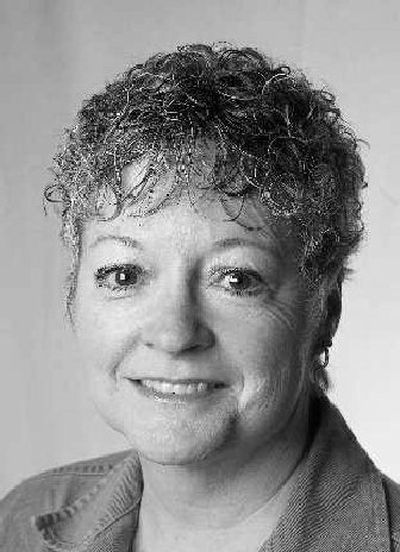Halting repeat crimes takes early attention

As volunteer programs coordinator with Spokane County Juvenile Court, Susan Cairy helps recruit and train community members who want to make a difference in children’s lives through the neighborhood accountability board, or diversion program, and the Court Appointed Special Advocate program. Cairy answered questions online Monday about those programs, the training required to take part, and other issues having to do with child abuse and neglect prevention. Below is an edited transcript of the chat. To read more, go to spokesmanreview.com/ourkids/chats.
Q: Once an offender has made his or her way through the juvenile system, is there anything that – in your opinion – would make it less likely for the person to re-offend … something we’re not doing today?
Cairy: It’s all about getting to these kids early on. It’s taken us years to convince legislators that money needs to be put into the front end of the system in programs like CASA (Court Appointed Special Advocates) and the diversion program. At the (Our Kids: Our Business) luncheon last week, Bob Watt (of the Boeing Co.) said it’s important to get corporations to understand that investing in very-early childhood programs pays off. Investing on a personal level, by volunteering at the crisis nursery, for CASA, or the food bank, in all those ways you’re making an investment in kids. For those who have already been offenders, we have to follow these kids once they’re out of the system. If these kids don’t have life skills, once they’re out of the system they’re going to resort to a life of crime, which is all they’ve ever known. We also have to expose them to good things in life, like recreational opportunities and the possibility of going to college. Given that, they have something better to strive for.
Q: What is the normal outcome with CASA?
Cairy: We ask our CASA volunteers for an 18-month commitment. That’s typically the period of time from when a child is referred to us until they are permanently placed, either back with their biological parents, in relative care or in a foster/adopt home. The majority of children are returned to their biological parents. The law says we will determine a permanent placement for each child within 12 months. So the additional six months, if the child is returned home, is for the state and the CASA to continue to oversee how things are going. The sad reality is that if a child is placed out of home, the parents may continue to have children that will also be removed at least temporarily from their care. And the cycle continues.
Q: How many CASA volunteers do you currently have, how many do you need to handle the caseload for these precious commodities, and how often is the CASA training available?
Cairy: We have about 180 CASA volunteers right now. We have five staff who carry the overflow caseload that we can’t assign to volunteers. And their caseloads run between 90 and 100 kids. Ideally we would have a CASA volunteer for every child referred. So if we had 400 volunteers I would be a happy woman. We train four times a year for the program and alternate two different schedules. When we train in June, we’ll train four full days, two Fridays and Saturdays, from 8:30 a.m. to 5 p.m. When we train again in September, it will be Tuesday and Thursday evenings, 5:30 to 8:30 p.m. for five and a half weeks. If people are interested, my phone number is (509) 477-2469, or my e-mail is scairy@spokanecounty.org.
Q: What is the one change you think people could make in their lives that would keep kids from ending up in your system?
Cairy: That’s a tough one. Bob Watt mentioned in his comments at the luncheon last week that children learn compassion by the age of 3. You can’t teach people compassion in a classroom setting. It has to come from your environment. I think if people could recognize that they don’t have the support they need when they become parents, and know where to go to get support, this entire generation of children would be much better off. People in turmoil look for ways to numb the pain. Sometimes it’s drugs and alcohol, so recognizing that they need help with that is going to make them better parents. The economy doesn’t look to turn around any time soon. So we’ve got to provide financial support to people that allows them to get on their feet, stay on their feet.